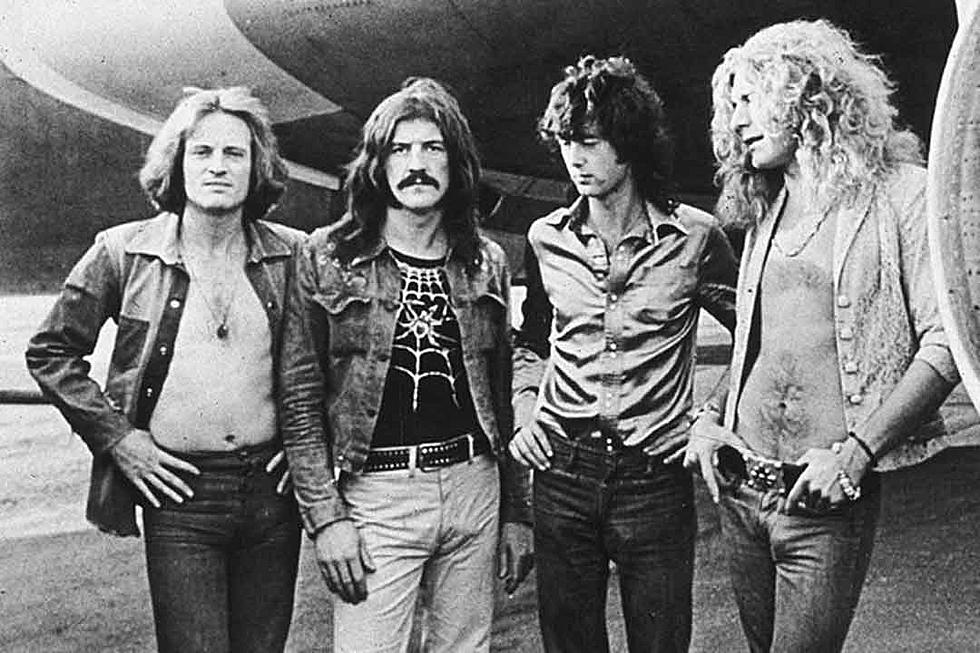Classical Education
Let me recommend Steven Hyden's Twilight Of The Gods, a highly entertaining book about classic rock. Hyden is aware classic rock is not what it once was. Classic rockers are dying out, and fewer people listen to it.
But even when Hyden was a teen in the 90s, classic rock was dinosaur music. That didn't stop him, and millions of others, from being attracted to its aura. When you're young, the music matters, and there was so much to discover in all those albums. As a kid (and even an adult) titles like Led Zeppelin IV or Dark Side Of The Moon help explain what life is about.
Before discussing various facets of the music, Hyden has to explain just what classic rock is in the first place. It may not be what you think. After all, Chuck Berry and Little Richard are "classic" rock, but they're not "classic rock." By the 70s, the dividing line was clear--the Beatles' Sgt. Pepper album in 1967. Before that, rock was oldies, after, classic rock.
While the canon was being created, it wasn't called classic rock, of course. But by the 80s, through clever marketing, that's what it became. The concept became a radio mainstay. And while classic rock stations mostly played old songs, the music could grow to include new acts.
Hyden's short description of classic rock is music from acts who sell millions of albums, do shows in stadiums, and have four to six songs that everybody knows. So David Bowie is classic rock, while equally-cool-in-critics'-eyes Lou Reed doesn't quite make it.
For that matter, Lou Reed's old band, the Velvet Underground, though considered one of the greatest ever by critics, isn't quite classic rock, while Led Zeppelin, whom the critics at first hated, most definitely is. And the performers don't even have to be great rockers. Billy Joel is classic rock (though Randy Newman isn't).
Hyden admits (sadly) the quintessential classic rock band is the Eagles. He doesn't like them, he doesn't know anyone who likes them, but they check all the boxes.
Hyden has a sense of humor about his taste in music, but also clearly loves the stuff. By the way, I often disagree with his musical taste (and his politics), and I expect you will, too. But that shouldn't stop you from checking out the book.



3 Comments:
In the early 1980s, I listened to KMET and KLOS (which played basically the same music, even though partisans of each station insisted there was a difference). They never used the term "classic rock." They were just "rock" or "rock and roll" (or "not that New Wave crap").
In 1986, the first "classic rock"-branded station appeared in Los Angeles: KLSX. Based on its call letters, I assumed they had coined the term.
But according to Wikipedia, the term was used in Cleveland as early as 1980.
I've never liked the term, because it's not a true genre. It's like saying "sixties music" or "American music". Hard rock, mellow rock, heavy metal, country-rock, Southern rock, psychedelic rock, progressive rock -- these are the genres which you could hear on a classic rock station before the mid-1990s.
But since the mid-1990s you hear just about everything on "classic rock" stations. You can even hear bands like the Police and the Clash, which were completely verboten on long-hair stations back in my day. The long-hairs and the punk/New Wave folks did not listen to each others' music. Period. The first band to be played on both KROQ and KLOS was U2, and then others followed.
By the way, when KLSX appeared, it was a sea change in Los Angeles rock radio. KMET and KLOS were not in any way "oldies" stations at the time. They played rock from the mid-1960s to the present, but they always favored new stuff. You would hear cuts from the newest Who and Rolling Stones and Yes albums far more often than you would hear their older stuff.
Of course, this was because one of their tasks was to promote bands, and active bands always want their newest album promoted.
But when KLSX appeared, they did not play new stuff. In 1986, their playlist stretched from the mid-sixties to the late 1970s. While KLOS and KMET were playing "Emotional Rescue" and "Eminence Front," KLSX was playing "Paint it Black" and "Magic Bus." And KSLX played bands like Creedence that had been totally forgotten by KLOS and KMET.
But the L.A. market couldn't support three rock stations. In 1987, KMET went out of business, and the great Jim Ladd has floated from place to place ever since. Eventually KLSX went out business too, and today KLOS calls itself a "classic rock" station and plays the same oldies over and over.
It wasn't just classic rock that changed. Oldies changed. At first, oldies meant the earliest rock and roll--mid-50s up to the early 60s. Eventually, oldies included not just Elvis and Chuck Berry, but early Beatles and Beach Boys and Motown.
But it didn't stop there. By the late 80s, oldies included late 60s and even 70s music. A dividing line that means so much to some (including those who felt the Beatles ruined the sound they loved) dies when a new generation with new childhood memories grows up.
Post a Comment
<< Home